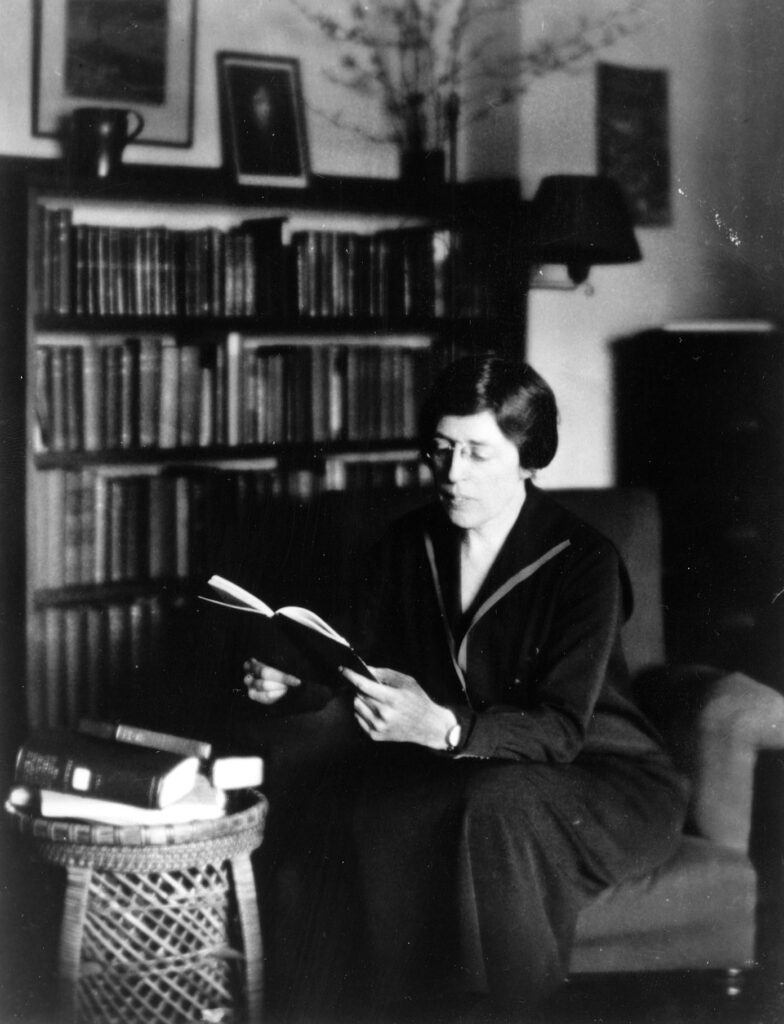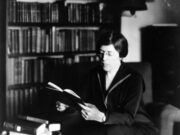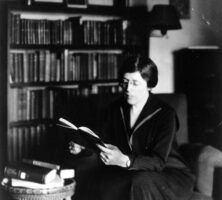C. Mildred Thompson, a prominent historian, educator, and feminist, made a name for herself not only in academic circles but also in both Democratic politics and international affairs. Born in Atlanta on November 27, 1881, to Irish immigrant and hotelier Robert Galbraith Thompson and his wife, Alice Wood, Thompson gave early notice of her fundamental seriousness and individualism. Sharing the name Mildred Thompson with another neighborhood girl, she added to her own name the initial of her forename, Clara, so that the two could be easily distinguished.
After an education in Atlanta’s public schools, Thompson forged her strongest institutional affiliation with Vassar College in Poughkeepsie, New York, where she received her undergraduate degree in 1903. Having taught for a few years at a Baltimore, Maryland, private school, she joined Vassar’s history department in 1908 and served as dean of the college from 1923 to 1948. As dean, she pioneered in curricular matters, instituted college entrance examinations, and worked to obtain scholarship funds for the promising young women who needed them. After her retirement from Vassar in 1948, Thompson also taught history and served as a curriculum consultant for several years at the University of Georgia. In the early 1950s she served as dean of women at the College of Free Europe in Strasbourg, France.

Courtesy of Special Collections, Vassar College Libraries
Thompson’s career as a historian began in 1906, when she commenced graduate studies at Columbia University in New York City. Her work there would culminate in both a master’s degree and a Ph.D. Joining renowned Reconstruction scholar William Archibald Dunning’s coterie of southern graduate students, Thompson figured conspicuously among those fellow scholars often known as “Dunning Men.” The only woman to contribute to Studies in Southern History and Politics Inscribed to William Archibald Dunning . . . by His Former Pupils the Authors (1914), she also became the only female historian to prepare one of the seven southern state studies of the so-called Dunning School of Reconstruction historiography. Her book, entitled Reconstruction in Georgia: Economic, Social, Political: 1865-1872 (1915), supplanted an earlier, sketchy treatment, The Reconstruction of Georgia (1901), by fellow Dunningite Edwin C. Woolley.
Reconstruction in Georgia has long been considered among the best of the Dunning School studies. Like the others, the book benefited from wide research and clear presentation, but it differed conspicuously in its moderate racial views and approval of the “democratization” that Reconstruction represented. In Writing Southern History (1965), Vernon L. Wharton used such words as “cautious, judicious, and temperate” to describe the book. He further noted, “Her story of Reconstruction was no simple tale of good versus evil. She recognized and attempted to analyze the complexities to be found in men and social change.” Asked in 1940 what she would change about her book, given the perspective of a quarter century, she responded that “most of all,” a revision would focus more on “the part of the Negroes themselves in securing and maintaining their freedom.”
Thompson’s life away from academia was quite varied and colorful. A lifelong and very active Democrat, she was a friend of Eleanor and Franklin D. Roosevelt, whom she often visited at their home in Hyde Park, New York. An early “celebrity intellectual” on the radio in the 1940s, Thompson was a popular participant on the radio show Information, Please! and counted the comedic actor Harpo Marx among her fans. She also hosted a weekly program on WJZ in New York called Listen, the Women. An ardent internationalist, she was the only woman delegate to London’s Conference of Allied Ministers of Education in England in 1944, and the next year she served as a drafter of the charter for the United Nations Educational, Scientific and Cultural Organization, known as UNESCO.
The final decades of her life were spent in active retirement in her native Atlanta, where she died on February 17, 1975, at the age of ninety-three.






